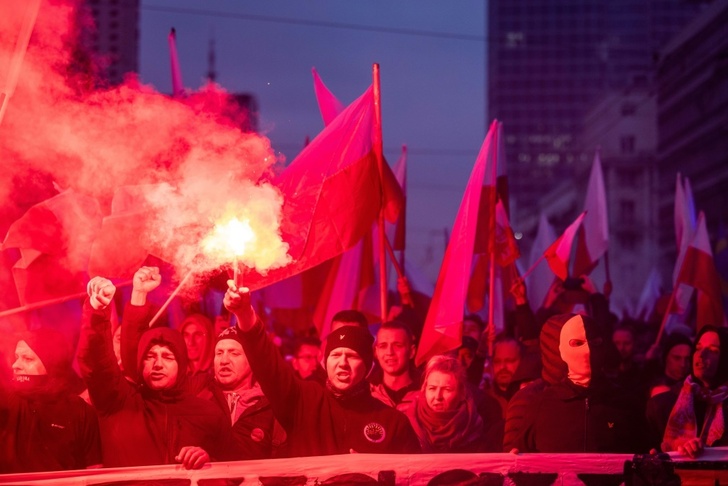Warsaw's annual "Independence March" by far-right nationalist groups has long been used to espouse Polish pride, but Ukraine was on their minds at this year's event.
"Hitler is dead but Putin is alive and he is repeating history with the Ukrainians," declared Stanislaw Fidurski, a 95-year-old retired colonel at Friday's march, which was led by four hussars dressed in historical costumes.
He said Poland could form a larger state with Ukraine -- an idea supported by two septuagenarians Marek and Piotr who said it would help Warsaw to "resist Russia".

They sang the national anthem, which was punctuated by the explosion of firecrackers and the flares of smoke torches.
The event commemorating Poland's Independence Day can be a lightning rod for controversy, pitting conservative groups against more liberal Poles.

"This march carries the idea of the rebirth of Poles facing materialism, consumerism, internationalisation," said Jacek Krzystek, co-founder of the Independence March.
"We want to free ourselves from certain things that unfortunately destroy Western Europe," he said, without specifying.

"This is not our war," blared another banner from the march.
Since Russia's invasion in February, the UN refugee agency says more than 7.8 Ukrainians have fled. Neighbours including the Czech Republic, Poland, Romania and Slovakia have opened their borders, homes and wallets to help those fleeing the war.
"Freedom is always important, no matter the context. You have to take care of it because you can lose it quickly," said Marek Krason, who came for the march from the southeastern region of Rzeszow, with his nine-year-old son.

"We must help the Ukrainians who need it, but without falling into madness," Krason said.
via/lpt/dhc/ach
© Agence France-Presse
Your content is great. However, if any of the content contained herein violates any rights of yours, including those of copyright, please contact us immediately by e-mail at media[@]kissrpr.com.
Source: Story.KISSPR.com

